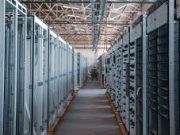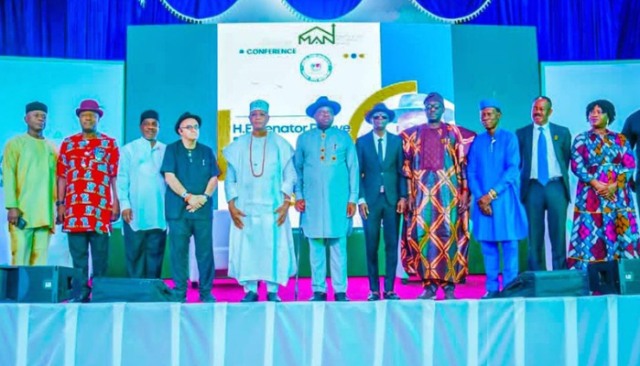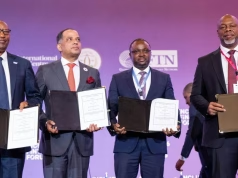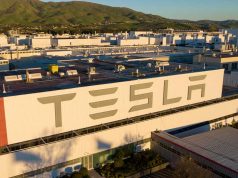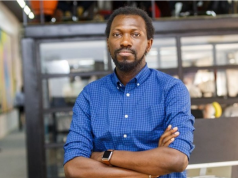The Manufacturers Association of Nigeria (MAN) has launched a bold call to action: harness the blue economy, embrace automation, and accelerate the adoption of artificial intelligence and advanced technologies to drive the next phase of industrial growth in the Niger Delta. At the close of its 41st Annual General Meeting, Conference, and Exhibition in Yenagoa, MAN issued a comprehensive communique urging stakeholders to pivot toward innovation, sustainability, and regional integration. This MAN blue economy automation push marks a strategic shift—from reliance on extractive industries to building a diversified, technology-driven manufacturing base anchored in maritime potential.
Held between November 13 and 14 under the theme “Trade, Technology and the Future of Manufacturing in the Niger Delta,” the event brought together industry leaders, policymakers, and development partners to chart a new course for one of Nigeria’s most resource-rich yet underdeveloped regions. The resulting recommendations emphasize that the future of manufacturing lies not in fossil fuels alone, but in smart investment, digital transformation, and sustainable use of coastal resources.
“Manufacturers should adopt automation, artificial intelligence, and advanced technologies to enhance efficiency,” the communique stated clearly—underscoring a growing consensus that competitiveness now depends on technological agility. From predictive maintenance in production lines to AI-powered supply chain optimization, these tools promise faster output, reduced waste, and improved quality control across sectors.
At the heart of the strategy is the blue economy—a term encompassing maritime-related industries such as seafood processing, shipbuilding, port logistics, offshore energy, and aquaculture. MAN specifically urged Rivers and Bayelsa states to fully develop their coastal advantages as strategic gateways for trade and sustainable industrialization. “Bayelsa and Rivers states must harness the blue economy as a viable pathway for Nigeria’s industrialisation,” the association stressed.
To unlock this potential, MAN recommended targeted investments in coastal industries, government-backed human capital development, and public-private partnerships to fund major infrastructure projects. It also called for institutionalized quarterly dialogues between manufacturers and Ministries, Departments, and Agencies (MDAs) to address operational bottlenecks and shape responsive policies.
Cross-border collaboration was highlighted as a critical enabler. “Partnerships with neighboring states and countries should be fostered to enhance trade, security, and environmental management,” the communique read—recognizing that regional value chains and shared waterways require coordinated governance and joint economic planning.
Infrastructure remains a key constraint. MAN emphasized the urgent need for improved power supply, transportation networks, and digital connectivity across the Niger Delta—prerequisites for any serious industrial expansion. With the global economy shifting toward green and circular models, the association warned that continued dependence on oil and gas would leave the region behind.
Leadership, the group added, must champion strategic planning and the adoption of Environmental, Social, and Governance (ESG) standards. It also proposed the establishment of export-ready manufacturing clusters—special economic zones equipped with modern utilities, regulatory support, and access to finance—to attract domestic and foreign investors.
MAN praised ongoing efforts by Bayelsa State Governor Senator Douye Diri, who highlighted his administration’s investments in infrastructure, security, and education aimed at positioning the state as a hub for blue economy and agro-industrial growth. Meanwhile, MAN President Otunba Francis Meshioye reiterated that the Niger Delta—with its vast natural endowments and strategic location—holds unmatched potential for industrial expansion, provided policy frameworks prioritize local manufacturing, ease of doing business, and cross-sector synergy.
The 2025 AGM marked a milestone: the first time the event was hosted in Bayelsa State, following a successful 2024 edition in Rivers State. More than symbolism, it signals a renewed focus on decentralizing industrial leadership and empowering regional branches to lead change where it matters most.
Backed by partners like the African Marine Environment Sustainability Initiative (AFMESI), which co-hosted sessions on sustainable ocean governance, MAN affirmed that the MAN blue economy automation push is not just aspirational—it is actionable.
As Nigeria seeks to diversify its economy and meet global competitiveness benchmarks, this agenda offers a clear roadmap: invest in people, empower industries with technology, and turn the coastlines of the Niger Delta into engines of inclusive, resilient, and future-ready growth.
Because the next era of Nigerian manufacturing won’t be built in isolation—it will be powered by the sea, driven by data, and led from the South-South.
Follow us on Instagram.
https://www.instagram.com/businessnewsng?igsh=ZXpweTdjOGF1ZXdu











